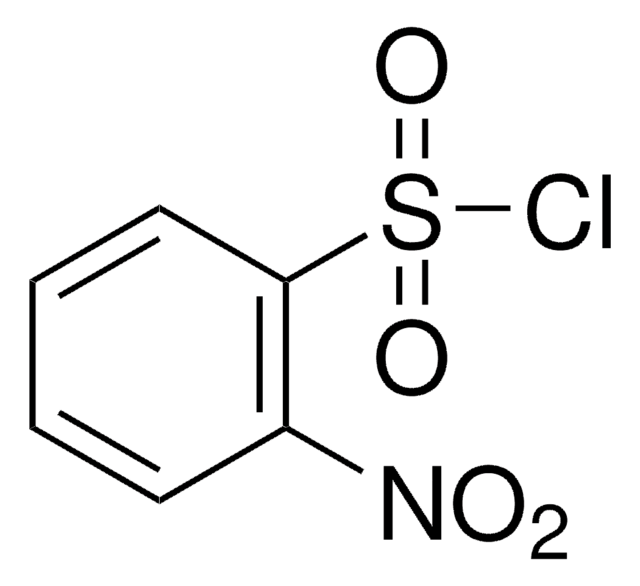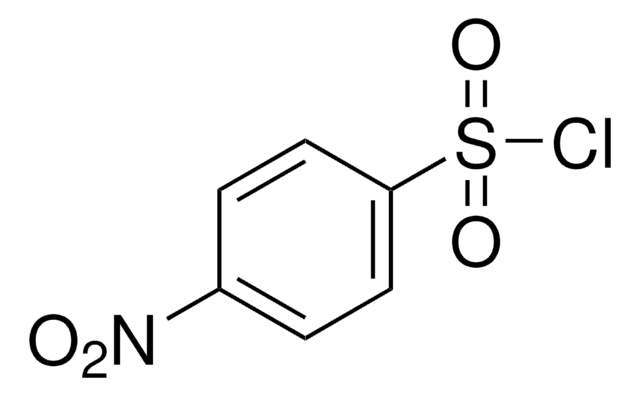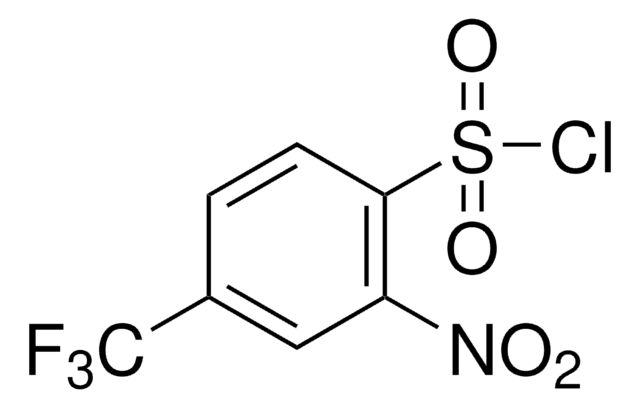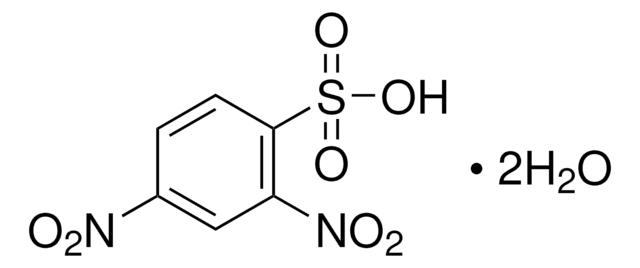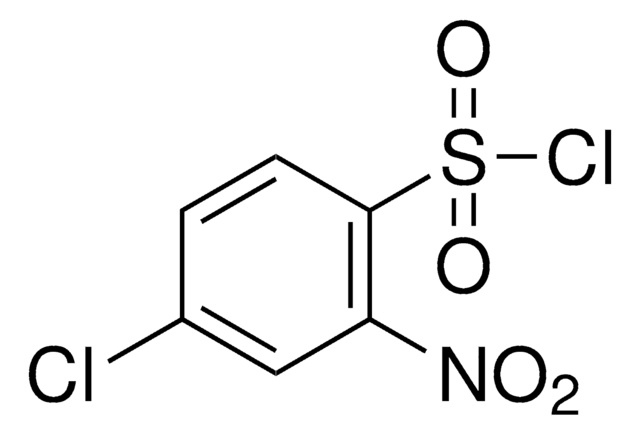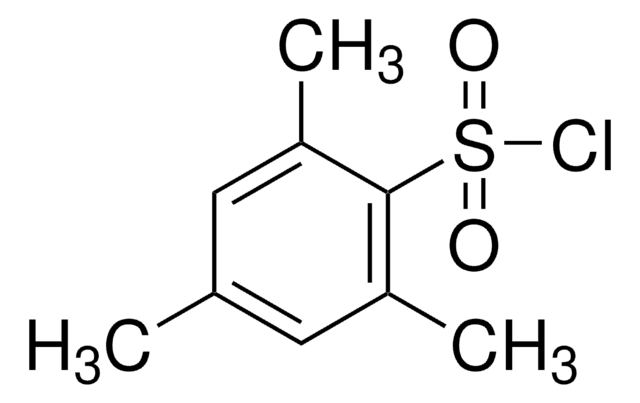All Photos(1)
About This Item
Linear Formula:
(O2N)2C6H3SO2Cl
CAS Number:
Molecular Weight:
266.62
Beilstein:
2147583
MDL number:
UNSPSC Code:
12352100
PubChem Substance ID:
NACRES:
NA.22
Recommended Products
Assay
97%
form
solid
mp
101-103 °C (lit.)
functional group
nitro
SMILES string
[O-][N+](=O)c1ccc(c(c1)[N+]([O-])=O)S(Cl)(=O)=O
InChI
1S/C6H3ClN2O6S/c7-16(14,15)6-2-1-4(8(10)11)3-5(6)9(12)13/h1-3H
InChI key
SSFSNKZUKDBPIT-UHFFFAOYSA-N
Looking for similar products? Visit Product Comparison Guide
General description
2,4-Dinitrobenzenesulfonyl chloride causes the sulfonation of glycosylamines to yield N-glycosyl-2,4-dinitrobenzenesulfonamides.
May contain up to 3.5% benzene
Application
2,4-Dinitrobenzenesulfonyl chloride was used to protect primary amines. It was used as starting reagent in the synthesis of tert-butyl 2-[(2,4-dinitrophenyl) sulfonyl]aminoacetate.
Signal Word
Danger
Hazard Statements
Precautionary Statements
Hazard Classifications
Carc. 1A - Eye Dam. 1 - Muta. 1B - Skin Corr. 1B - STOT RE 2
Target Organs
Blood
Storage Class Code
6.1C - Combustible acute toxic Cat.3 / toxic compounds or compounds which causing chronic effects
WGK
WGK 3
Flash Point(F)
Not applicable
Flash Point(C)
Not applicable
Personal Protective Equipment
dust mask type N95 (US), Eyeshields, Gloves
Choose from one of the most recent versions:
Already Own This Product?
Find documentation for the products that you have recently purchased in the Document Library.
Vishwanath Gaitonde et al.
Journal of carbohydrate chemistry, 31(4-6), 353-370 (2013-01-26)
The N-glycosyl-2,4-dinitrobenzenesulfonamides were accessed via benzoyl-protected β-glycosyl azides. The azides were reduced with Adams' catalyst to the corresponding amines. The glycosylamines were sulfonated with 2,4-dinitrobenzenesulfonyl chloride to form N-glycosyl-2,4-dinitrobenzenesulfonamides in moderate yields. β-Glycosyl amides were then prepared in 67 -
Rachel J Ball et al.
Artificial DNA, PNA & XNA, 1(1), 27-35 (2011-06-21)
Halogen-labelled peptide organic acid (HPOA) monomers have been synthesised and incorporated into sequence-specific peptide nucleic acid (PNA) probes. Three different types of probe have been prepared; the unmodified PNA probe, the PNA probe with a mass marker, and the PNA
Our team of scientists has experience in all areas of research including Life Science, Material Science, Chemical Synthesis, Chromatography, Analytical and many others.
Contact Technical Service